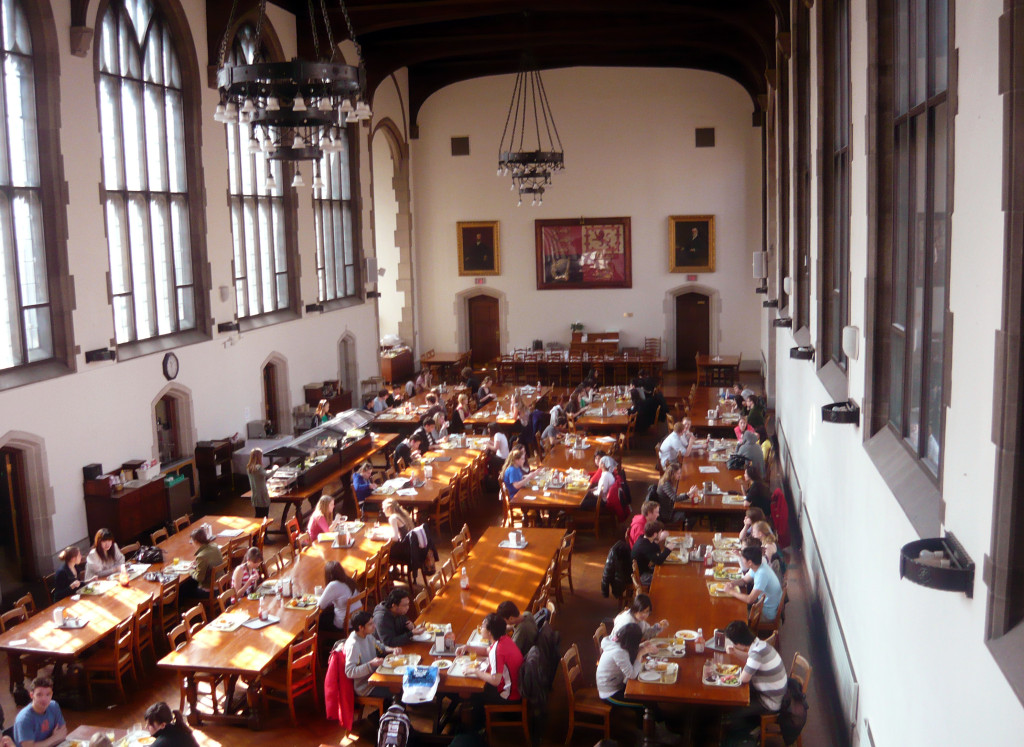- Calls to this hotline are currently being directed to Within Health, Fay or Eating Disorder Solutions
- Representatives are standing by 24/7 to help answer your questions
- All calls are confidential and HIPAA compliant
- There is no obligation or cost to call
- Eating Disorder Hope does not receive any commissions or fees dependent upon which provider you select
- Additional treatment providers are located on our directory or samhsa.gov
College Student in ED Recovery: When is it Appropriate to Involve my Family

Contributor: Leigh Bell, BA, writer for Eating Disorder Hope
There’s not a specific formula to when and how young adults should involve family in their recovery from an eating disorder. The simple answer? Do whatever best supports your recovery.
Research compares eating disorders, and treatment for them, in adults and adolescents but little is done specifically on the treatment of college-aged individuals, who teeter the threshold between childhood and adolescence.
50% of Eating Disorders Occur Between Ages 16-20
It’s important to address treatment practices of college-aged people because eating disorders are more prevalent (25%) than in any other age bracket, according to the National Institute of Mental Health.
College students fall somewhere in between children and adults – certainly not a child, but not quite a full-fledged adult. It is in this transitional phase of life that many people develop an eating disorder. Almost 50 percent of people with eating disorders developed the illness between the ages of 16 and 20; and 86% report onset of eating disorders by age 20, according to the National Association of Anorexia Nervosa and Associated Disorders.
Age of Patient Important when Treating Eating Disorders
Eating disorders present more seriously in adults than in teenagers, studies show. [1] Adults are more likely to have greater weight loss; prior use of psychiatric medications; and a history of binge eating and use of laxatives, diuretics, and ipecac. The differences are great enough, the researchers found, to be seriously considered in the evaluation and treatment of patients with eating disorders.
Family Based Therapy Important for Those Under 18
 Treatment of eating disorders in adults and adolescents also differ. Family is of much greater focus when treating a teenager with an eating disorder, while the individual is the central focus when treating an adult. It makes sense. The adult obviously has greater autonomy than a child living with mom and dad. It also makes sense, according to research, that children and adolescents under age 18 have better outcomes with family therapy in treatment for an eating disorder, but adults show more positive outcomes with individual therapy. [2]
Treatment of eating disorders in adults and adolescents also differ. Family is of much greater focus when treating a teenager with an eating disorder, while the individual is the central focus when treating an adult. It makes sense. The adult obviously has greater autonomy than a child living with mom and dad. It also makes sense, according to research, that children and adolescents under age 18 have better outcomes with family therapy in treatment for an eating disorder, but adults show more positive outcomes with individual therapy. [2]
Families were once seen as a hinderance to treatment and were even blamed by many professionals for the eating disorder of a family member. This perception changed dramatically in the late 1970s at the Maudsley Hospital in London, where family-based therapy, or the Maudsley Method, began and today flourishes as an effective treatment method for adolescents but not necessarily adults.
Research compared anorexic teenagers receiving family based treatment (FBT) for one year to their anorexic peers receiving adolescent-focused individual therapy (AFT) for the same amount of time. [3] After a year more than half of patients who had family-based therapy were in full remission from the eating disorder, compared to 23% of those who had individual therapy. One year later, 40% of patients who achieved remission during individual therapy relapsed, compared to just 10% of those who had family-based treatment.
The Academy of Eating Disorders acknowledges these findings and takes a strong stance that families should be “involved routinely in the treatment of most young people with an eating disorder,” according to the organization’s position paper “The Role of the Family in Eating Disorders.”
“Exactly how such involvement should be structured, and how it will be most helpful will vary from family to family.”
Effective Treatment in College-age Individuals May Vary
 Again, nothing about what’s effective for college students with an eating disorder. Family involvement in the treatment of young adults may simply depend on the situation. If you’re away at college, it’s more difficult for your family to be intensely involved, but if you’re too sick to stay in college and you’re at home, your family may play a greater role in your treatment.
Again, nothing about what’s effective for college students with an eating disorder. Family involvement in the treatment of young adults may simply depend on the situation. If you’re away at college, it’s more difficult for your family to be intensely involved, but if you’re too sick to stay in college and you’re at home, your family may play a greater role in your treatment.
Another aspect of family involvement depends on the willingness of someone with an eating disorder to get treatment. Family members often have to intervene when a loved one’s eating disorder is taking over. And eating disorders do take over your mind, your body, and your life. It is important to get the right treatment, and for you, that may or may not include your family.
Community Discussion – Share your thoughts here!
Have you struggled with an eating disorder while in college? When did you include your family in therapy to support your recovery?
 About the Author: Leigh Bell holds a Bachelor of Arts in English with minors in Creative Writing and French from Loyola Marymount University in Los Angeles. She is a published author, journalist with 15 years of experience, and a recipient of the Rosalynn Carter Fellowship for Mental Health Journalism. Leigh is recovered from a near-fatal, decade-long battle with anorexia and the mother of three young, rambunctious children.
About the Author: Leigh Bell holds a Bachelor of Arts in English with minors in Creative Writing and French from Loyola Marymount University in Los Angeles. She is a published author, journalist with 15 years of experience, and a recipient of the Rosalynn Carter Fellowship for Mental Health Journalism. Leigh is recovered from a near-fatal, decade-long battle with anorexia and the mother of three young, rambunctious children.
References
[1]: Fisher, M., Schneider, M., Burns, J., Symons, H., & Mandel, F. (2001). Differences between adolescents and young adults at presentation to an eating disorders program. Journal of Adolescent Health, 28(3), 222-227.[2]: Wagner, E. (n.d.). Transition from the Child-Adolescent to Adult Systems of Care for Eating Disorders. Retrieved November 13, 2015, from http://nedic.ca/transition-child-adolescent-adult-systems-care-eating-disorders
[3]: James Lock, J., Le Grange, D., Agras, S., Moye, A., Bryson, S., Jo, B. (2010). Randomized clinical trial comparing family-based treatment with adolescent-focused individual therapy for adolescents with anorexia nervosa. Archives of General Psychiatry, 67(10), 1025-1032.
The opinions and views of our guest contributors are shared to provide a broad perspective of eating disorders. These are not necessarily the views of Eating Disorder Hope, but an effort to offer discussion of various issues by different concerned individuals.
We at Eating Disorder Hope understand that eating disorders result from a combination of environmental and genetic factors. If you or a loved one are suffering from an eating disorder, please know that there is hope for you, and seek immediate professional help.
Last Updated & Reviewed By: Jacquelyn Ekern, MS, LPC on January 3, 2015
Published on EatingDisorderHope.com

The EatingDisorderHope.com editorial team comprises experienced writers, editors, and medical reviewers specializing in eating disorders, treatment, and mental and behavioral health.

